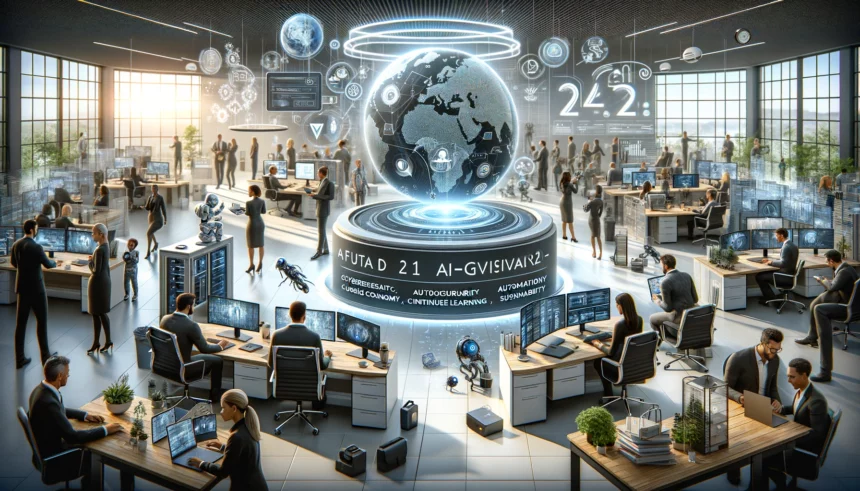As we navigate through 2024, the landscape of work continues to change at an amazing pace. Technology is reshaping industries, changing job roles, and redefining how we think about work. The future of work isn’t a distant idea—it’s happening right now. Let’s explore the key tech trends driving this transformation and what might come next.
1. Artificial Intelligence and Machine Learning
Artificial Intelligence (AI) and Machine Learning (ML) are leading the way in the future of work. These technologies are transforming various sectors by:
- Automating routine tasks
- Enhancing decision-making processes
- Creating new job opportunities
In 2024, AI will be even more integrated into business operations, from customer service chatbots to advanced data analytics. For example, AI in healthcare is helping with faster diagnoses and personalized treatments, while in finance, AI algorithms are improving investment strategies and risk management.
2. Remote Work and Virtual Collaboration
The COVID-19 pandemic sped up the adoption of remote work, and this trend is here to stay. Advances in communication technologies and collaboration tools are making remote work a permanent part of the modern workplace. Platforms like Zoom, Microsoft Teams, and Slack have become essential for virtual meetings and project management.
Looking ahead, we can expect more innovations like:
- Immersive virtual reality (VR) and augmented reality (AR) experiences for remote collaboration
- Virtual office spaces where teams can meet and brainstorm as if they were physically together
3. The Gig Economy and Freelance Platforms
The gig economy is growing, offering flexibility and independence to workers. Platforms like Upwork, Fiverr, and Toptal are becoming more advanced, with:
- Better matching algorithms
- Secure payment systems
- Professional development resources
By 2024, these platforms might use AI to match freelancers with projects more efficiently and offer tailored skill development programs. Blockchain technology could ensure transparent and secure contracts and payments.
4. Cybersecurity and Data Privacy
With technology playing a bigger role in work, cybersecurity and data privacy are more important than ever. As cyber threats increase, businesses must invest in strong cybersecurity measures to protect sensitive information and maintain trust.
In 2024, we can expect advancements such as:
- AI-powered threat detection systems
- Biometric security measures
- Decentralized data storage using blockchain technology
5. Automation and Robotics
Automation and robotics are transforming industries by taking over tasks that are dangerous, repetitive, or need high precision. In manufacturing, robots are boosting production efficiency and quality, while in logistics, autonomous vehicles and drones are improving delivery and supply chain operations.
The future will see AI-integrated robotics creating more adaptable and intelligent systems that work alongside humans. This human-machine collaboration will redefine job roles, making new skills and continuous learning essential.
6. Upskilling and Reskilling
The fast pace of technological change means that workers need to be adaptable and constantly learning. Upskilling and reskilling are crucial to help workers thrive in the evolving job market. Companies and educational institutions are offering more online courses, training programs, and certifications.
By 2024, we might see more personalized learning experiences powered by AI, tailoring educational content to individual learning styles and career goals. VR and AR will also provide immersive and interactive training environments.
7. Sustainable and Green Technologies
Sustainability is becoming a key focus in the future of work. Businesses are adopting green technologies to reduce their environmental impact and meet regulatory requirements. Renewable energy, energy-efficient buildings, and sustainable supply chains are becoming standard practices.
Looking ahead, integrating IoT (Internet of Things) with green technologies will enable smarter energy management and reduce waste. Companies will prioritize sustainability not just for compliance but as a core part of their strategy and brand identity.
Conclusion
The future of work is being shaped by technological advancements, societal shifts, and economic changes. As we look towards 2024 and beyond, it’s clear that embracing these tech trends will be crucial for businesses and workers alike. Staying ahead of these developments can create a more efficient, flexible, and sustainable work environment for everyone. The key to success will be adaptability, continuous learning, and a forward-thinking approach to integrating technology into all aspects of work.
















